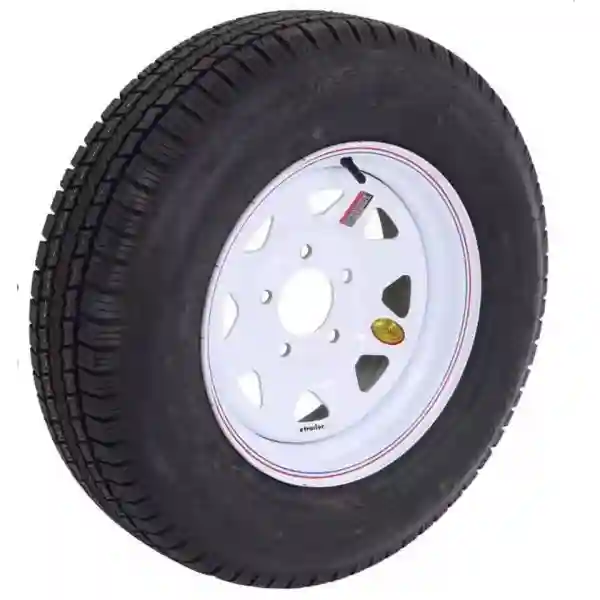Discover the distinctions between steel and aluminum wheels in our detailed handbook. This blog will help you gain insights into the makeup of materials used in production processes, how they affect performance, and pricing to select the best wheels for your driving requirements.
What are the Key Differences Between Steel and Aluminum Wheels?
In comparing the performance value of steel and aluminum wheels, it’s important to grasp their core distinctions. Starting from the basics, these variances can greatly influence how you experience driving, the maintenance requirements you’ll have to meet, and the overall performance of your vehicle.
Material Composition
The makeup of wheels plays a role in determining their characteristics. Steel wheels are made from an alloy of iron and carbon which gives them a build and adds weight to lower the vehicle’s center of gravity. Aluminum wheels are crafted differently from wheels since they consist of an alloy that includes aluminum as well as metals such as nickel or magnesium to make them lighter and more efficient, at heat conduction. The decreased weight of aluminum wheels might enhance fuel efficiency. Upgrade handling performance.
Manufacturing Process
The production methods used for steel and aluminum wheels show distinctions between them. The creation of steel wheels usually involves stamping and welding procedures, which are known for their cost efficiency. They somewhat restrict the freedom in design choices.
Alloy wheels are manufactured through casting or forging methods—casting entails pouring melted aluminum into molds, whereas forging involves shaping the metal using high-pressure mechanisms. These techniques enable the creation of patterns and diverse styles to cater to a wide range of aesthetic preferences and choices.
Durability and Strength
Choosing the kind of wheels involves thinking about durability and sturdiness as crucial factors to consider. Steel wheels are well known for their toughness and ability to withstand impacts or rough terrain. They can handle tough conditions without bending easily, which makes them perfect for rough usage.
Alloy wheels are usually not as rugged as steel wheels in environments; however, they provide ample durability for typical driving situations. They are resistant to rust. May be susceptible to surface blemishes, such as scratches or dents.
How Do They Perform in Various Driving Conditions?
When assessing steel and aluminum wheels, it’s essential to consider how they perform in driving situations, as this is a crucial factor in comparing the two types based on the encountered conditions.
Off-road Capabilities
Aluminum Wheel
Alloy wheels offer advantages for off-road driving because of their lightweight nature that can improve suspension performance; nonetheless, they might not endure heavy impacts as effectively as steel wheels do.
Steel Wheel
Steel wheels are well suited for off-road conditions due to their toughness and capacity to handle jolts on surfaces without getting seriously harmed, making them perfect for vehicles that navigate challenging terrains often.
Winter Performance
Aluminum Wheel
During winter weather conditions, aluminum wheels are more resistant to corrosion caused by road salts than steel wheels; however, they may not function effectively in heavy snow or icy conditions due to their lighter weight.
Steel Wheel
Steel rims are a choice for use in snowy conditions due to their heavier weight giving improved grip in slippery situations. Though they are prone to rust when exposed to salt, they continue to offer performance in the winter months.
What Are the Cost Implications of Choosing One Over the Other?
When deciding between steel and aluminum wheels, cost plays a role in the decision-making process from the initial purchase prices to the ongoing maintenance expenses over time.
Initial Purchase Price
Steel rims typically have an initial price than aluminum alternatives because of less complex manufacturing methods, which appeals to cost-conscious customers who value practicality over aesthetics.
Alloy wheels often come with a price tag at the start due to the intricate manufacturing methods needed for production and the design flexibility that these materials provide.
Long-term Maintenance Costs
Maintenance expenses over time can differ for these two-wheel options, with steel wheels needing more frequent care to prevent rust or repaint if regularly exposed to corrosive substances, such as road salt.
Aluminum wheels typically require upkeep as they are more resistant to corrosion compared to steel ones, but you might need to consider repairs for any cosmetic damages if the appearance is a key factor for you.
When you consider things like what the rims are made of and how they’re made and balanced against their durability and how well they handle different driving conditions while also thinking about the costs involved in all these factors, that’s when you can figure out whether steel rims or aluminum rims give you more bang for your buck based on what you need and like, within your area of expertise.
Is Vesteon a Reliable Supplier for Steel Wheels?
When thinking about steel wheels, selecting the supplier is very important. Vesteon has made a name for itself as a trusted player in the wheel production sector. With an emphasis on quality and longevity, Vesteon provides a variety of steel wheels that adhere to strict criteria.
The steel wheels made by Vesteon are constructed using top-notch materials and cutting-edge manufacturing methods to guarantee durability and dependability. They subject their products to testing to endure different driving situations, making them ideal for everyday use as well as challenging settings.
Vesteon also offers top-notch customer service. Support post-purchase—an important factor to consider when selecting a supplier. Their commitment to ensuring customer satisfaction and delivering high-quality products establishes them as a reliable option for sourcing steel wheels.
Conclusion
Choosing between steel and aluminum wheels involves considering factors, including the materials they are made how they are manufactured their durability and performance in different driving scenarios, and cost implications There are unique benefits, to both types of wheels depending upon your requirements and preferences.
When you assess these factors based on your needs and preferences, in your area of expertise, it can help you decide on the option that provides value for performance.
FAQs About Steel and Aluminum Wheels
Are steel wheels better for winter driving?
Steel rims are commonly preferred for driving in winter because of their weight which can improve grip in slippery conditions such as snow or ice-covered roads. Although they are prone to rust from the road salts used in winter months, their sturdy build ensures performance in cold weather situations.
Can aluminum wheels affect my car’s fuel efficiency?
Certainly! Aluminum wheels have the potential to enhance fuel efficiency by virtue of their weight in contrast to steel wheels. The decreased mass lessens the strain on the engine of the vehicle, which could potentially result in fuel consumption rates. This quality makes aluminum wheels a choice for individuals who value efficiency in their vehicles.
Do aluminum wheels require more maintenance than steel wheels?
Aluminum wheels usually need upkeep to prevent rust compared to steel wheels, as they are more resistant to corrosion. Yet they may need some care for damages like scratches or dents if appearance matters. Steel wheels might call for regular maintenance, such as rust prevention treatments or repainting when regularly exposed to corrosive substances like road salt.


